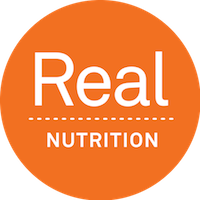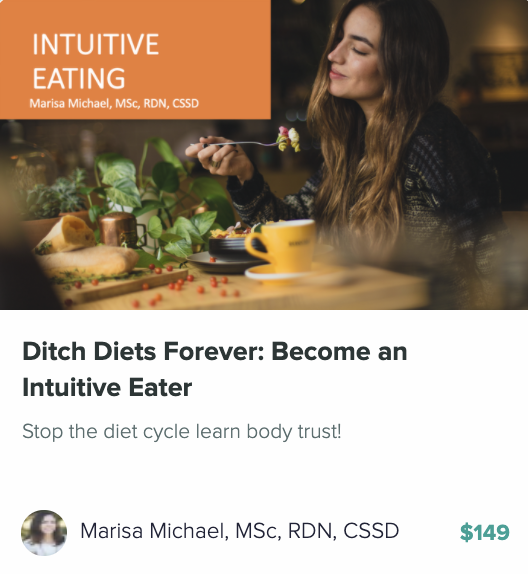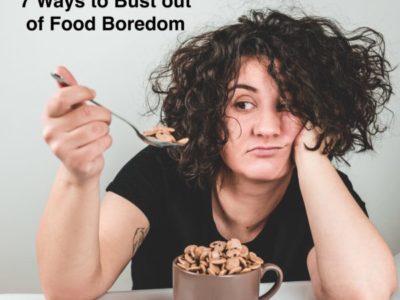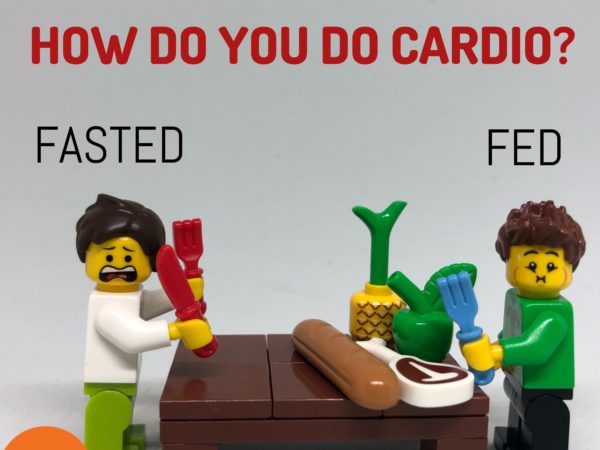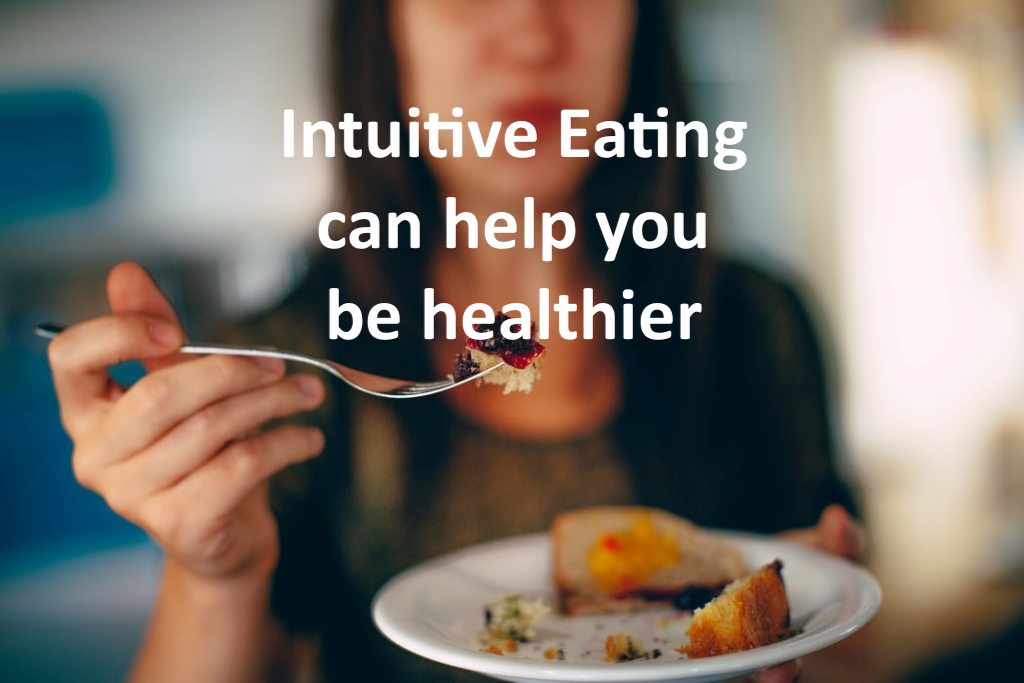
Many diets are just fads. They come and go, and get replaced with another secret to easy weight loss or fitness. These are usually quick solutions that promise even quicker results, none of which are sustainable or actually healthy. This toxic diet culture, along with the poor relationship with our bodies it breeds, is what registered dietitians Evelyn Tribole and Elyse Resch aimed to break with the development of intuitive eating.
What is intuitive eating?
First things first: intuitive eating is not a diet. To diet is to follow a specific way of eating which is often characterized by a restriction of some kind. Some people limit their intake of calories or certain nutrients, avoid certain types of food, or eat only within a specific window of time. Intuitive eating is the opposite of that. It was introduced by Tribole and Resch in 1995 as a mind-body approach to health. Intuitive eating involves finding a connection between the two and listening to cues that your mind and body tell you. The simplest examples are to eat when you’re hungry and eat the things you want without feeling guilty.
One of their goals with this evidence-based approach is to address the toxic effects of diet culture. Our society puts a lot of value on a person’s weight, size, and shape to the point that it’s creating unhealthy relationships with our bodies, food, and fitness.
It’s a dangerous notion that one’s value is dependent on their physical appearance and unfortunately, this mentality is rubbing off on younger generations according to Dr. Mariea Snell who is the assistant director of Maryville University’s online Doctorate of Nursing Practice program. This can be observed in various social media platforms popular among teenagers. Research shows that even half an hour on social media can create poor self-image among young people, which may develop into disordered eating. Snell highlights in an article on the link between social media use and eating disorders that the curation of social media feeds leads to the development of an ‘unrealistic personal expectation’ especially when it comes to appearance. She says that messages telling people how to eat to look a certain way — and to feel beautiful and happy — run rampant on social media.
Intuitive Eating can have better health outcomes
Intuitive eaters have been shown to have improved:
- Anxiety around food
- Blood sugar control
- Mental health around food and body
- Risk for heart disease
- And more!
It’s backed by over 120 scientific studies.
The Ten Principles of Intuitive Eating
This diet culture was already prevalent during Tribole and Resch’s time, which is why they wanted to dismantle it with intuitive eating. Instead of having a strict meal plan, you listen to hunger, cravings, and satisfaction cues. The article ‘Why Doesn’t Intuitive Eating Work?’ explains that it takes time and guidance for people to develop this connection especially if they’ve learned to suppress these internal signals. It’s also acceptable if you’re not proud of your body just yet as long as you don’t punish it with food and exercise. It can be paired with intuitive exercise, what personal trainer Jen Elliott describes as joyful movement, which follows the same principles as intuitive eating.
Instead, you can learn to be neutral about your weight and acknowledge it as a fact about you that doesn’t dictate how healthy or happy you can be. Intuitive eating is all about following a set of principles that teaches a healthy attitude toward food and, in turn, one’s body image. These principles are:
- Reject the diet mentality.
- Honor your hunger.
- Make peace with food.
- Challenge the food police.
- Respect your fullness.
- Discover the satisfaction factor.
- Cope with emotions with kindness.
- Respect your body.
- Exercise — feel the difference.
- Honor your health — gentle nutrition.
Redefining Health Goals with Intuitive Eating
It can be a scary process but to become ‘successful’ at this approach, you have to also redefine your health goals. Because intuitive eating is not a restrictive diet, the overall goal is not weight loss. Instead, the overall health goals that intuitive eating can help achieve are cultivating a healthy relationship with food and body image and improving overall mental health.
Interested in more? Learn how to become an intuitive eater with the Ditch Diets Forever course.
Written by Andie Hill
Edited by Marisa Michael
This article is only for realnutritionllc.com’s publishing
~This is general information only and not nutrition advice. Always consult with your healthcare professional before undergoing any diet or lifestyle change.
